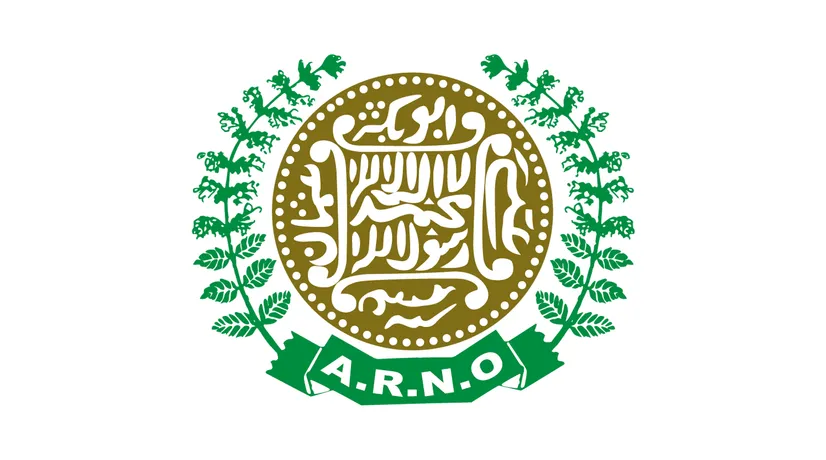Remembering Rohingya Genocide
25 August 2020

25 August 2020
On this day August 25, 2017, the Myanmar brute military forces, police, state-sponsored non-state actors, and Buddhist Rakhine vigilantes restarted premeditated genocidal purges against our innocent people carrying out mass murder, widespread rape, systematic arson attacks, destruction of homes, and villages.
Since August 2017, at least 360 villages have been destroyed. A latest report (by Ontario International Development Agency) states more than 24,843 Rohingyas were murdered, 40,000 Rohingya had suffered bullet wounds, 18,498 women and girls were raped, 34,000 people were thrown into fire, more than 114,000 people were beaten, 115,000 houses were burnt down 113,000 others were vandalized. This is a conservation estimate and the actual casualties were likely higher.
Today we remember something that happened to us or to our communities, including those in neighbouring ethnic and religious minority groups. Similarly, we remember something that happened before 25 August 2017 – the genocidal killing of our people in 1978 and 1991-92; more specifically the deadly massacres in 2012, 2013, 2014, 2015, 2016 in Arakan, in central Burma, and across the country. Today we also remember what befell our people before we were born. We recall these moments because they are sadly relevant for us today. Let us not forget because we forget a lot. When forgetting, we convey the message – to ourselves or to others –that a person, event, or place from the past is not worthy of our attention.
Today our people, the survivors in Arakan and refugee camps are no longer people, mere ruins. They are a people without a past, for it was taken away from them, and without a future. Everything is broken and our homeland is continued to be irrecoverably destroyed.
The crimes never happen overnight. The Rohingya genocide is a last step in the continuity of destruction that began decades ago, largely from 1962 military takeover in Burma, more particularly from 1978. Their aim is to destroy our people in whole or in part from our ancestral homeland to which we have physical, psychological, and spiritual attachment.
There are many testimonies of survivors. They were unarmed people caught off guard, chosen as victims solely because of their ethnicity. In spite of our repeated forewarning of genocide looming over our defenceless people, there was no international response. They were busy admiring Daw Aung San Suu Kyi who has been dishonest defending brute forces and denying rape stories. She could have saved many lives and destruction of Rohingya and other minority groups but was uncharacteristically silent and reluctant to help them and indeed she was not totally powerless.
Here, we are compelled to ask ourselves: how was this genocide possible at all? On the other hand, the answer lies in the inactivity of the international community, which according to the Convention on the Prevention and Punishment of the Crimes of Genocide, was obliged to act, that is to “prevent and punish” genocide. Unfortunately, almost all governments have avoided calling the crime by its proper name –genocide—eschew their obligation from the Convention, which, ultimately, implies intervention. Encouraged by the hesitancy of the international community, the Myanmar brute forces realize their criminal policy without punishment. On the other hand, the Rohingya who are left behind in Arakan are under continued genocide and facing great humanitarian disaster.
The attitude of the Myanmar political and military leaders towards Rohingya has not changed, and the situation in Arakan is not conducive for voluntary, safe, honourable, dignified and sustainable repartition of the refugees from Bangladesh. Here we thank the people and government of Bangladesh for sheltering and looking after our refugees. We also appreciate international community, the governments, NGOs, human rights and humanitarian organisations and individual for their supports.
The punishing of crimes must be accepted as a moral imperative. However, this will not compensate for the innocent victims whose lives have been lost, but it will be an important investment for our own future. Without embracing the responsibility for the crimes, there is no compromise with the criminals and the enemies of humanity. The perpetrators must be brought to justice. We are thankful to The Republic of Gambia for filing a genocide case in the International Court of Justice (ICJ) with the backing of the Organisation of Islamic Cooperation (OIC). We appreciate the current investigation by the International Criminal Court into the matter. This is the time for the United Nations to intervene in Arakan State, if necessary, by seeking global consensus.
In conclusion, today we remember and honour all those who were killed as heroes and martyrs. We will remember them forever. Today we also salute our female survivors, including the rape victims, for their courageous efforts to survive, even as refugee widows and orphans. The carnage is more than a tragedy. The extent of barbarity or methods employed in Arakan State against our people surpassed everything else that took place on the territory of Myanmar. That will not and can never be forgotten.
For more details, please contact:
Dr Mohammad Habib Ullah Cell / WhatsApp +1-4438158609 or email at [email protected]
၎
င
၎
၎
Announcements
21 May 2025
Open letter: Malaysia must lead ASEAN with principle, not hypocrisy, to address the Myanmar crisis

Progressive Voice is a participatory rights-based policy research and advocacy organization rooted in civil society, that maintains strong networks and relationships with grassroots organizations and community-based organizations throughout Myanmar. It acts as a bridge to the international community and international policymakers by amplifying voices from the ground, and advocating for a rights-based policy narrative.